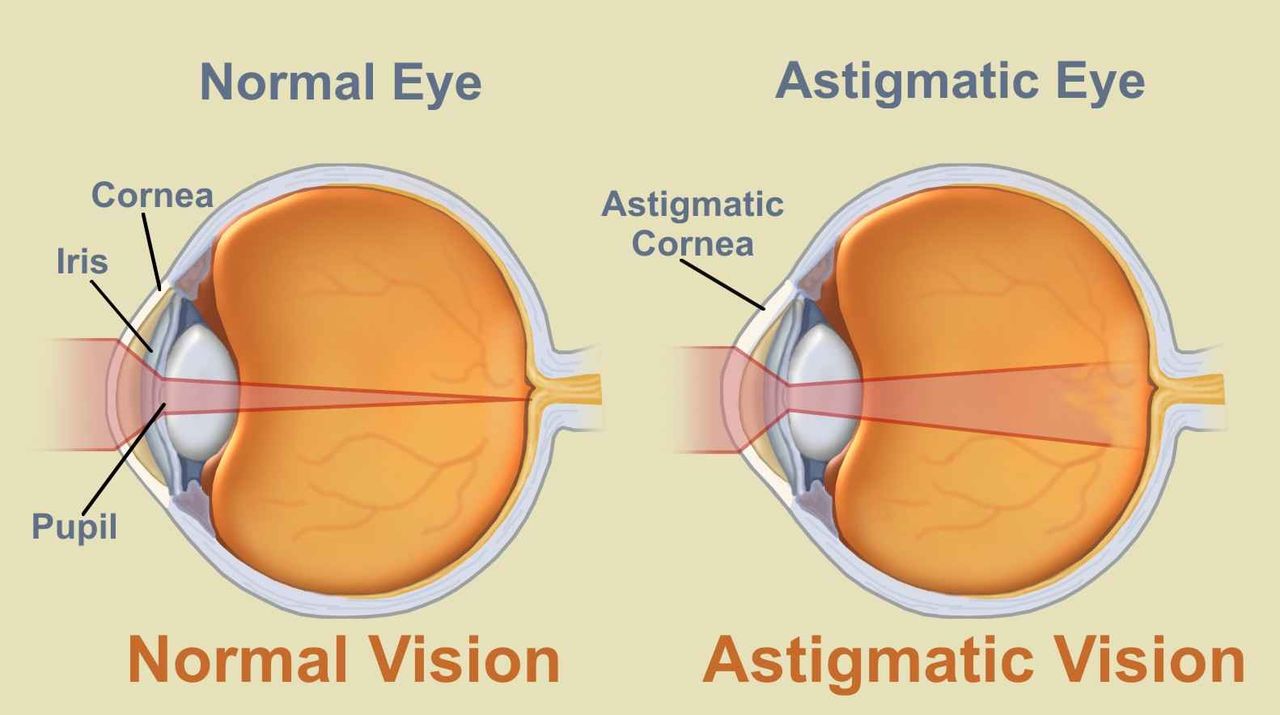
What exactly is astigmia?
Astigmatism is a refraction disorder in which the surface of the cornea or lens of the eye is not a regular sphere, but rather an ovoid shape. This causes light to gather on the retina not at a single focal point, but at multiple points or in blurred bands.
How does astigmatism develop?
Most astigmia is congenital, i.e. genetic – in many cases it is present from childhood. It often occurs in combination with other refractive errors, such as myopia or farsightedness. However, astigmatism may also develop as a result of some external factors, such as eye injury, scarring after eye surgery or certain corneal diseases such as keratoconus.
Symptoms and warning signs
The signs of astigmatism are not always obvious, especially when it is mild. In many cases, a routine eye examination is the only way to detect the problem. If you have more than one of the following symptoms, you should consult an optometrist, a qualified healthcare professional who specialises in complete vision screening.
- Blurred or distorted vision both near and far
- Frequent eye fatigue, especially after reading or using a monitor
- Headaches, especially in the forehead
- Frequent squinting
- Focusing problems while driving at night
- Getting letters and numbers wrong when reading
How can astigmatism be diagnosed?
During the examination, our experts use a variety of tools, such as an autorefractometer, which automatically measures the refraction of the eye, and a corneal curvature meter, which also maps the curvature of the cornea. The degree of astigmatism is measured in dioptres and the “cylinder value” shows the difference in refraction between the axes.
When should you seek professional help?
If you have any vision problems, frequent headaches or eye fatigue, it is a good idea to have a vision test. Astigmatism does not always present with prominent symptoms, but it can affect quality of life in the long term. Regular eye screening is particularly important for children, as their vision is constantly developing and untreated astigmatism can lead to blurred vision.
Treatment options for astigmia
Astigmatism can be corrected very well with appropriate optical devices. The most common solution is spectacles with cylindrical lenses, which accurately correct the curvature deviations. The lenses are custom-made, taking into account the degree and the axial direction of the cylinder.
The other common solution is toric contact lenses, which are specially designed to stay in place in the eye for a stable correction. With modern technology, daily, bi-weekly or monthly replacement toric lenses are now available, offering a comfortable and aesthetic alternative to glasses.
Astigmatism in childhood
Many people don’t think about it, but astigmatism often appears in childhood. However, young children cannot articulate their vision problems, so they need the attention of their parents and teachers. If a child squints, leans close to reading material, often misses lines or complains of headaches, it is worth seeing a paediatric ophthalmologist.

